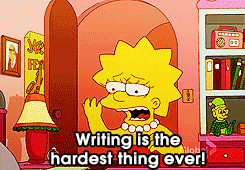How to Write a Narrative Essay
Our activity
86,941
Finished orders
732
Professional writers
103
Writers online now
14
Operators are online
4,9
Of 5 average writers' score
Narrative essays are common writing assignments throughout all the levels of education in schools. The aim of this task is for students to demonstrate that they can link their personal experiences with the class theme. Mastering the skills of writing for storytelling can make this assignment very interesting and fun for the students.
Order Now
 There are two main aspects associated with narrative essays, the story, and its analysis. The theme of the narrative might be specific, but your story will illustrate the notion.
Note that:
Your Story’s Relevance to the Prompt
School assignments are usually aimed at testing whether you’re keen on taking instructions. Some prompts might be intentionally crafted to obscure or make the main theme less conspicuous. Before you zero in on your story and start writing, read the prompt once again and more closely this time as you have a topic in mind. Ensure the story you selected fits the assignment.
Related: How To Start a Narrative Essay
Rich with Vibrant Details
Specific details, imageries and language aid in making the essay lively for the reader. Each scene in the essay should be discussed in deep details. When brainstorming for the topic of your essay, you should contemplate on stories rich in such details.
Keep in mind that:
There are two main aspects associated with narrative essays, the story, and its analysis. The theme of the narrative might be specific, but your story will illustrate the notion.
Note that:
Your Story’s Relevance to the Prompt
School assignments are usually aimed at testing whether you’re keen on taking instructions. Some prompts might be intentionally crafted to obscure or make the main theme less conspicuous. Before you zero in on your story and start writing, read the prompt once again and more closely this time as you have a topic in mind. Ensure the story you selected fits the assignment.
Related: How To Start a Narrative Essay
Rich with Vibrant Details
Specific details, imageries and language aid in making the essay lively for the reader. Each scene in the essay should be discussed in deep details. When brainstorming for the topic of your essay, you should contemplate on stories rich in such details.
Keep in mind that:
 Before you start writing a narrative essay, ensure that you build up a blue print to guide you through the writing. This will ensure that you remain within the context and you include all the points that you’d intended to write. The following tips will shed more light on how you’ll proceed:
Sketch the Plot
How do you begin and conclude your essay? What are the major points that you want in it? Write down the main plot point for the narrative as a way of ensuring that you touch on all highs in writing. Your outline should clearly show the beginning, middle, and end of your paper. A good outline sketch impacts your essay in the following ways:
Before you start writing a narrative essay, ensure that you build up a blue print to guide you through the writing. This will ensure that you remain within the context and you include all the points that you’d intended to write. The following tips will shed more light on how you’ll proceed:
Sketch the Plot
How do you begin and conclude your essay? What are the major points that you want in it? Write down the main plot point for the narrative as a way of ensuring that you touch on all highs in writing. Your outline should clearly show the beginning, middle, and end of your paper. A good outline sketch impacts your essay in the following ways:
 The setting gives your story its context. Just as the characters are important to the story, so is the setting is to the plot. Where does your story unfold? At home, town, friend’s house or school? Bring out the setting vividly and fuse it into your story naturally.
Write down a brief, richly detailed description of the setting. How much information do you remember about the place? What extra info can you find out? This is where you could probably do some research in your essay. Find more information and confirm its accuracy.
The setting gives your story its context. Just as the characters are important to the story, so is the setting is to the plot. Where does your story unfold? At home, town, friend’s house or school? Bring out the setting vividly and fuse it into your story naturally.
Write down a brief, richly detailed description of the setting. How much information do you remember about the place? What extra info can you find out? This is where you could probably do some research in your essay. Find more information and confirm its accuracy.
 Revising is a core principle of ensuring that your essay is of substance. Professional writers usually must revise their articles several times before the final run. Finalize your draft in good time for you to be able to go over it looking for ways to improve it.
Revise for clarity in fact delivery, to correct starting point and proofread your essay as the final revision.
Conclusion
We are all good storytellers but writing a story can be a bit elusive. Following these guidelines on how to write a narrative essay will ensure that you become a good story writer. Conclude a narrative essay by simply summing up the main idea of your essay by paraphrasing it. Leaving the reader with something to think about is a much-recommended way of concluding your essay as well.
Revising is a core principle of ensuring that your essay is of substance. Professional writers usually must revise their articles several times before the final run. Finalize your draft in good time for you to be able to go over it looking for ways to improve it.
Revise for clarity in fact delivery, to correct starting point and proofread your essay as the final revision.
Conclusion
We are all good storytellers but writing a story can be a bit elusive. Following these guidelines on how to write a narrative essay will ensure that you become a good story writer. Conclude a narrative essay by simply summing up the main idea of your essay by paraphrasing it. Leaving the reader with something to think about is a much-recommended way of concluding your essay as well.
Principles of Writing a Narrative Essay
In writing a narrative essay, like all other types of essays, there are guidelines which writers must follow in producing narrative essays of acceptable standards:- They are written in the first person (I) but the third person (he, she and it) is also acceptable.
- Narratives apply solid imagery and sensational language to deliver the message.
- Should contain all parts of a story: captivating introduction, the body containing the plot (setting and characters), climax and conclusion.
How to Write a Narrative Essay
Writing a good narrative essay involves stages ranging from before, during and after writing the essay. Follow the guidelines for each stage, and your essay will be a top grade paper.Part 1: Picking the Topic
Topic selection is the most critical part of the essay. This lays down the path that your essay will follow. Carefully select a topic that you’re most comfortable with before you start the writing. Select a Story That Demonstrates the Topic Clearly There are two main aspects associated with narrative essays, the story, and its analysis. The theme of the narrative might be specific, but your story will illustrate the notion.
Note that:
There are two main aspects associated with narrative essays, the story, and its analysis. The theme of the narrative might be specific, but your story will illustrate the notion.
Note that:
- Narratives essays most of the time don’t require reference to external or academic sources. Your personal experiences will be used to qualify the arguments in the essay.
- Narrative essays are used in schools to test the students’ creativity in storytelling and also their abilities to link elements of their personal lives to the topic being discussed in class.
- You should use your imagination creatively to fill the gaps. When explaining scenes don’t include lengthy detailing of particular contexts, rather, give a brief overview of the general context associated with particular emotions and senses.
- Fiction is highly discouraged in narrative essays. Avoid far-fetched ideas or stories that could discredit your story.
- Broad plots generally result in poor essays. ‘My senior year’ or ‘last summer’ is an example of stories that unfold in a series of several months and too big for the specific amount of detail required for an essay. It’s advisable to pick an event out of the lengthy duration that will reasonably fit into an essay.
- Limit the number of characters in your essay. You can’t fit all your senior year friends in a single essay. The reader will lose track of them all. Select one or the most necessary ones.
Part 2: Drafting the Essay Sections
 Before you start writing a narrative essay, ensure that you build up a blue print to guide you through the writing. This will ensure that you remain within the context and you include all the points that you’d intended to write. The following tips will shed more light on how you’ll proceed:
Sketch the Plot
How do you begin and conclude your essay? What are the major points that you want in it? Write down the main plot point for the narrative as a way of ensuring that you touch on all highs in writing. Your outline should clearly show the beginning, middle, and end of your paper. A good outline sketch impacts your essay in the following ways:
Before you start writing a narrative essay, ensure that you build up a blue print to guide you through the writing. This will ensure that you remain within the context and you include all the points that you’d intended to write. The following tips will shed more light on how you’ll proceed:
Sketch the Plot
How do you begin and conclude your essay? What are the major points that you want in it? Write down the main plot point for the narrative as a way of ensuring that you touch on all highs in writing. Your outline should clearly show the beginning, middle, and end of your paper. A good outline sketch impacts your essay in the following ways:
- It reduces a clatter of information and sharpens the focus of your story
- It gets your arguments straight to the point of focus
- It organizes your thoughts and how you bring out your ideas in the essay
- It enables you to identify the best starting point for your story
- When bringing out characters, use a unique and interesting description that portrays intimate connection between the two of you. Using familiar description such as physical appearance can easily lead to weak character build up.
- Briefly outline the main character in your story and include a few specific and essential details about them relevant to the story.
 The setting gives your story its context. Just as the characters are important to the story, so is the setting is to the plot. Where does your story unfold? At home, town, friend’s house or school? Bring out the setting vividly and fuse it into your story naturally.
Write down a brief, richly detailed description of the setting. How much information do you remember about the place? What extra info can you find out? This is where you could probably do some research in your essay. Find more information and confirm its accuracy.
The setting gives your story its context. Just as the characters are important to the story, so is the setting is to the plot. Where does your story unfold? At home, town, friend’s house or school? Bring out the setting vividly and fuse it into your story naturally.
Write down a brief, richly detailed description of the setting. How much information do you remember about the place? What extra info can you find out? This is where you could probably do some research in your essay. Find more information and confirm its accuracy.
Part 3: Revise Your Essay
Take note of the following as you revise your essay: Utilize Scenes and Summaries Your narration basically revolves around these two aspects. Scenes are the detailed contexts where your story takes place, and summaries are the links between scenes. Scenes are small moments that bear the details of the important happenings in the story whereas summaries are longer moments that you read over quickly. Include Dialogue and Correctly Format It The narrative should contain at least an instance of dialogue between two or more characters. Get familiar with the rules and regulations of correctly formatting the instances of dialogue in writing. Clarity of the Theme Your essay should clearly bring out the theme of the prompt. The reason for you narrating your story should not be tangled in between the essay. Revise your rough draft anticipating how much effort the reader will use to capture the theme. Don’t leave them too behind or let them get too far ahead of you. Induce the theme at the onset and don’t be too obscure and suspenseful with the theme. Revise Your Essay Revising is a core principle of ensuring that your essay is of substance. Professional writers usually must revise their articles several times before the final run. Finalize your draft in good time for you to be able to go over it looking for ways to improve it.
Revise for clarity in fact delivery, to correct starting point and proofread your essay as the final revision.
Conclusion
We are all good storytellers but writing a story can be a bit elusive. Following these guidelines on how to write a narrative essay will ensure that you become a good story writer. Conclude a narrative essay by simply summing up the main idea of your essay by paraphrasing it. Leaving the reader with something to think about is a much-recommended way of concluding your essay as well.
Revising is a core principle of ensuring that your essay is of substance. Professional writers usually must revise their articles several times before the final run. Finalize your draft in good time for you to be able to go over it looking for ways to improve it.
Revise for clarity in fact delivery, to correct starting point and proofread your essay as the final revision.
Conclusion
We are all good storytellers but writing a story can be a bit elusive. Following these guidelines on how to write a narrative essay will ensure that you become a good story writer. Conclude a narrative essay by simply summing up the main idea of your essay by paraphrasing it. Leaving the reader with something to think about is a much-recommended way of concluding your essay as well.
Related
Articles chiefessays


